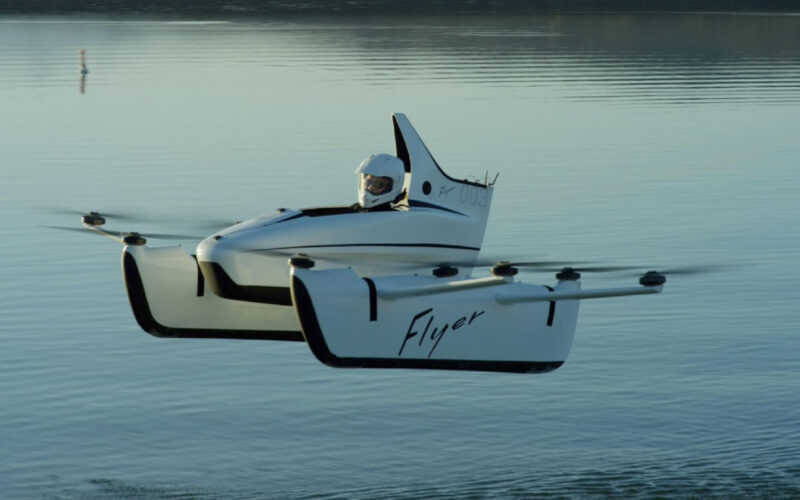Flying taxi start-up Kitty Hawk, backed by Google co-founder Larry Page, is closing down. The Silicon Valley-based aircraft manufacturer announced its decision on September 21, 2022.
“We have made the decision to wind down Kitty Hawk. We’re still working on the details of what’s next,” the air taxi developer announced on LinkedIn.
Founded in 2010, Kitty Hawk dedicated more than a decade to the development of its eVTOL [electric vertical takeoff and landing, ed.-] aircraft, the Kitty Hawk Flyer. The manufacturer aimed to build an all-electric ultralight aircraft to serve as an air taxi vehicle for urban areas.
The company has not provided reasons behind the closure yet.
Air taxies that never flew
During its twelve years of operation, Kitty Hawk mainly focused on developing prototypes for two all-electric aircraft – the Flyer and the Cora – both of which were supposed to become an innovative solution for autonomous personal air travel.
Production of the Flyer began in 2018. The plan was for a single passenger air vehicle capable of flying up to 10 feet (around 3 meters) high, which could reach a speed of up to 20 miles per hour (around 32 kilometers per hour). However, in 2020, Sebastian Thrun, the start-up’s chief executive and who was one of the key developers of Google’s self-driving car and Google Glasses, warned that the Flyer would not turn into a successful business.
In the meantime, since early 2018, Kitty Hawk was working on another autonomous, electric air taxi prototype, the Cora. This project, an air taxi for two passengers, seemed to have more prospects than the Flyer.
The project even attracted the interest of US planemaker Boeing. In late 2019, Boeing and Kittyhawk established a joint venture, Wisk, whose main goal was to further develop the concept of the self-flying air taxi. In January 2022, Boeing injected $450 million into the project and Wisk showed off its self-flying air taxi at the Farnborough Airshow in July 2022.
Another two of the most recent Kitty Hawk products were the Heaviside and its second version H2. Announced in October 2019, the eight-motor prototype Heaviside was supposed to become one of the world’s most quiet air vehicles. The manufacturer promised that it would be a hundred times quieter than a conventional helicopter. In February 2022, the start-up presented a more advanced version of the all-electric aircraft, the H2. The new faster successor of the Heaviside was designed to fly a single passenger at speed varying between 60 and 100 miles per hour (between 96 and 160 kilometers per hour).
However, none of these projects ever reached the certification stage.

